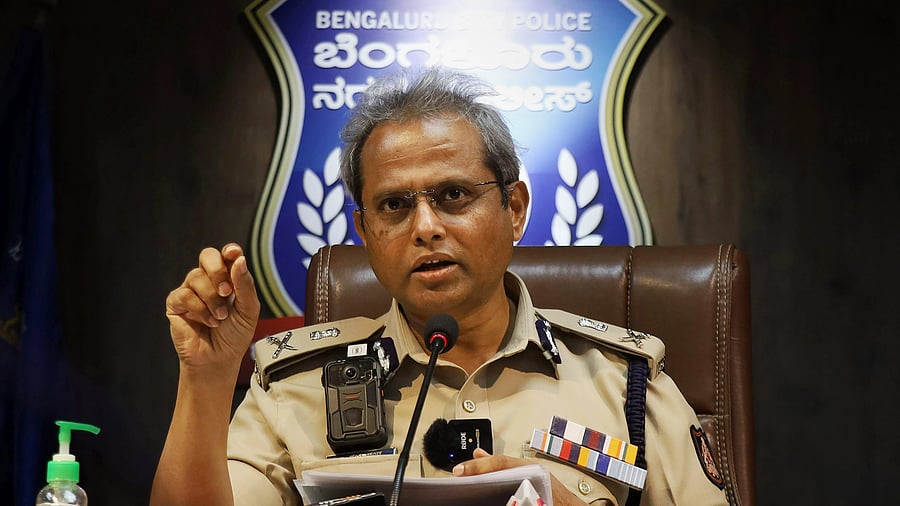
Bengaluru City Police Commissioner B Dayananda.
Credit: PTI File Photo
Bengaluru police plan to approach Interpol through the Central Bureau of Investigation (CBI) for assistance in the investigation into the hoax bomb threat emails sent to dozens of schools in the city last week.
Forty-eight schools in Bengaluru and 22 on the outskirts received the emails on Friday. While the Bengaluru city police are investigating the source of the 48 emails, the Bengaluru district police are probing the rest.
Speaking to reporters on Tuesday, Bengaluru Police Commissioner B Dayananda said 27 FIRs had been filed at multiple police stations and a meeting about the case was conducted on Monday.
“Six similar emails were received last year. We held a meeting with the investigating officers of those cases to find any similarity in the emails. However, the content and service providers turned out to be different,” he said.
He noted that all schools received the email from the same ID and the content was identical.
Dayananda said the police would approach text and content-reading experts to understand the probable reasons behind writing such emails and what these emails suggest.
He revealed that the email service provider had responded to a requisition sent by the police. He said investigations are ongoing along those lines as well but didn’t give details.
According to the top cop, police are gathering information through open sources about similar incidents in different countries to understand the case in detail.
He stated that the USA, Germany, Malaysia and Trinidad and Tobago had received similar emails.
Dayananda acknowledged that the case was “challenging”, noting that it was a kind of cybercrime. And since the Virtual Private Network (VPN) was used to send the emails, the case involves technical intricacies, he added.